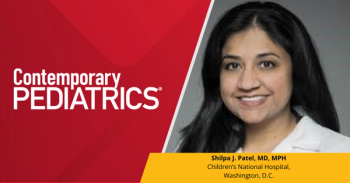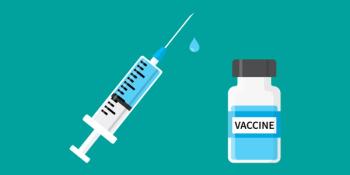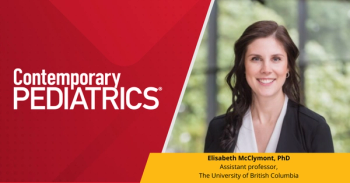
Eye on Washington
Blood pressure in children rises, "health literacy" sags
Blood pressure in children rises, "health literacy" sags
June in the capital is a breathing space, where the heavy heat of summer hasn't yet overwhelmed legislators and tourists alike. Iraq continues to dominate headlines, as the Abu Ghraib prison scandal refuses to die and the handover of sovereignty scheduled for the end of the month seems more and more problematic. But this is an election year and, to the extent that candidates can bring the conversation around to anything other than Iraq, health care seems likely to be the dominant issue of the campaign. Opposing views on how to solve the health-care crisis are being played out against a background of high (and ever-rising) costs; large (and increasing) numbers of uninsured citizens (43.6 million at latest count, many children); and evidence that the quality of the care that many Americans receive is not as good as it should be (see the item on page 8). The actuality of the prescription drug discount cards that became available this month is proving less attractive to seniors than the administration had hoped, and unrest about the high cost of prescription drugs has moved even Health and Human Services Secretary Tommy Thomson to say that legalizing re-importation of lower-cost drugs is "inevitable."
Both probable presidential candidates have a plan, of course, to deal with these issues. President George W. Bush's plan is a package of tax credits to help families purchase health insurance; tax-free health savings accounts; and caps on malpractice insuranceat a total estimated cost of $70 billion over 10 years. Senator John Kerry's plan is far more ambitious, and includes coverage for all uninsured children and most uninsured adultsat an estimated cost of $650 billion over 10 years. The Kerry proposal would also underwrite the cost to employers of the most expensive medical cases among their employees, if employers promised to pass those savings along to their workers through a reduction in premiums. Senator Kerry proposes to fund his plan by repealing Bush tax cuts for families with yearly incomes over $200,000. We will all hear more as the campaign unfolds in the months to come.
For now, less sweeping proposals and actions bear scrutiny:
According to the Institute of Medicine (IOM), nearly half of adults in the United States have difficulty reading and understanding health information. Limited health literacy, the IOM says, may lead to millions of dollars in avoidable health-care costs. That conclusion is supported by a study done by the University of California at Los Angeles that showed that providing parents of children in a Head Start program with training in how to handle minor childhood illnesses at home cut by half emergency room visits as a "first source of help" and decreased by 41% parents' days of work lost because of children's illnesses. Expanding such programs throughout Head Start, says the Wall Street Journal, could reduce Medicaid expenditures by as much as $2.38 billion. Read the IOM report, "Health Literacy: A Prescription to End Confusion," at www.iom.edu/report .
Childhood obesity is attracting increased attention, as long-range studies supported by the National Heart, Lung, and Blood Institute (NHLBI) reveal a steady trend of rising blood pressure in US children and adolescents, attributed in large part to poor diet and lack of exercise. The NHLBI and the National High Blood Pressure Education Program will release a clinical practice guideline later this summer that includes revised blood pressure tables for the pediatric age group and updated recommendations for lifestyle modification and drug therapy.
"The obesity-related rise in blood pressure among American children is a serious health issue," said NHLBI Acting Director Barbara Alving, MD. "We need to take steps to reverse this trend."
As a first step in that direction, Senator Tom Harkin (D-Iowa) has introduced a bill that would grant the U.S. Department of Agriculture greater authority to regulate, first, public school lunch programs and, second, food made available in vending machines on school premises.
The Food and Drug Administration (FDA) has decided that teenagers should be protected from the dangers of over-the-counter sale of emergency contraception. In an extraordinary override of the recommendation of its own advisory committee (by a vote of 23 to 4), the FDA has blocked Barr Pharmaceutical's application to make Plan B, the emergency contraceptive, easily accessible on drugstore shelves. (For background on this controversy, see "Updates" in the January 2004 issue.) The agency's rationale for this action? Barr's application did not provide adequate data demonstrating that Plan B can be safely used by adolescents 16 years or younger without supervision by a licensed health-care provider. To win approval, Barr will have to show that mechanisms to prevent teens from picking Plan B directly off the shelf can be put in place or do a new study demonstrating that young teens can get an adequate understanding of how to use the product from the label alone, without the help of a physician. FDA's action was denounced as politically motivated in an editorial in the April 8 issue of the New England Journal of Medicine, which charged that "a treatment for any other condition, from hangnail to headache to heart disease, with a similar [to Plan B] record of safety and efficacy would be approved quickly."
Appeals to loosen federal restrictions on funding for stem cell research may be getting a more favorable reception from the administrationperhaps because appeals are coming from former First Lady Nancy Reagan, television star Michael J. Fox, and a bipartisan group of 206 members of the House of Representatives. In the first small sign that the president's opposition may be weakening, Elias Zerhouni, MD, director of the National Institutes of Health, responded to the congressional group with a letter saying that "from a purely scientific perspective, more cell lines may well speed some areas" of research. As of mid-May, however, a White House spokesperson said the president's position was unchanged.
The fight against AIDS in Africa and the Caribbean got a boost last month when the administration announced an expedited approval process for generic and fixed-dose combinations of antiretroviral drugs. FDA also promised more rapid review of applications from foreign manufacturers to sell patented US drugs as generics outside the US. Approval of some combinations and generics could come in two to six weeks, according to a statement by Health and Human Services Secretary Thompson.
Judith Asch-Goodkin
Contributing Editor
Newsletter
Access practical, evidence-based guidance to support better care for our youngest patients. Join our email list for the latest clinical updates.








